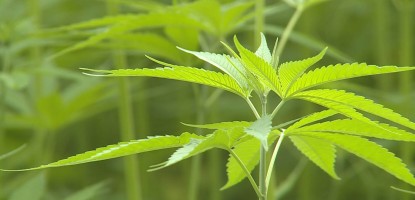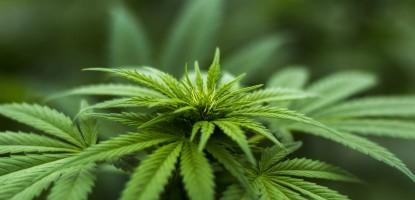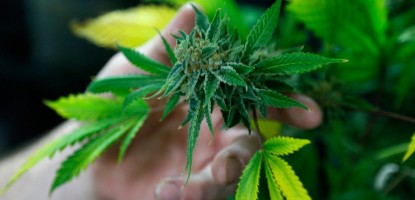Top 10 facts about Hemp

Hemp is one of the oldest plants; ancient civilizations across Central Asia - especially China and India - used it for making fiber, clothes, ropes, paper, and more. It's a plant that grows well in most climates and can be grown sustainably - no pesticides or other chemicals needed!
Despite what some people might think, hemp is not the same as marijuana. Marijuana is a type of cannabis that contains high levels of THC (Tetrahydrocannabinol), the chemical that causes people to get high. Hemp contains low levels of THC and is not psychoactive. This means that you can't get 'high' from smoking hemp.
Today, hemp is most commonly used for industrial applications, such as making paper and clothing. However, hemp can also make oil, fuel, and building materials. Here are ten facts about hemp that show just how incredible this plant is:
Hemp cultivation dates back 10,000 Years
The history of hemp cultivation dates back 10,000 years. Hemp and India go back thousands of years, too. In fact, the Vedas refer to it as one of the five most sacred plants. Most historians agree that the cannabis plant is native to Central Asia and the Indian subcontinent, in the Himalayan mountains from Kashmir through to Nepal, and even Bhutan and Myanmar. Even today, it is believed that 60% of all districts in India have wild cannabis.
The first recorded use of hemp was in 8,000 BCE in Taiwan. The seeds can be used for food, the leaves can be used for medicinal purposes, and the plant stem can be used for making rope and fabric.
Hemp cultivation has spread to other parts of Asia, Europe, and the Americas. In the early 1900s, hemp was grown in many parts of the United States as a commercial crop. Hemp has several potential applications in different industries. It can be used to make biofuels, building materials, textiles, paper, and even food.
Hemp eliminates toxic materials
Hemp can eliminate toxic materials from the environment. For example, hemp can be used to clean up oil spills. Hemp absorbs oil and other pollutants from the water and soil, helping to clean up contaminated areas. Hemp can also filter water, making it safer to drink.
In addition, hemp can be used to absorb harmful gases from the atmosphere. Hemp plants act as natural air purifiers, helping to improve air quality. Hemp can absorb heavy metals and other toxins from the soil, making it an ideal plant for phytoremediation.
The plant also decomposes quickly, meaning that it can be used as a sustainable source of material for products like paper and textiles. When hemp is used instead of trees for these products, it helps to reduce deforestation and the resulting environmental damage.
Overall, hemp is a versatile plant with many benefits for the environment. Its ability to eliminate toxins and improve air quality makes it an important tool in the fight against pollution.
Hemp is an alternative to paper and wood products
Hemp is a plant that can be used to create various products, including paper and wood. Hemp is an alternative to wood products because it requires less water and energy to produce. In addition, hemp reduces deforestation by providing a sustainable source of paper and wood.
Paper has for centuries been sourced from woody plants. However, forests have been strained per capita due to the risk of deforestation. This has caused a demand for non-wood raw materials, like hemp or bamboo.
Hemp plant yields more biomass compared to wood and twice more useable fiber. Furthermore, hemp contains 77 percent (three times more than wood) of cellulose, which means that hemp can produce 4x more paper than the wood plants grown in the same area.
Additionally, hemp grows quickly and can be harvested after four months of cultivation. Hardwood and softwood require about 8 to 12 years and more than 20 years, respectively, in rotation cycles.
Hemp oil is beneficial to your health
The hemp seed oil contains antioxidants that can reduce antioxidants that help protect the body from degeneration of disorders, leading to premature aging and diseases such as cancer. Furthermore, hemp has a desirable ratio of omega 3 to omega 6, which is known to improve cardiovascular health and reduce osteoporosis.
The polyunsaturated oil content helps to improve cardiovascular health. Furthermore, hemp oil increases the recovery of ischemia performance.
Hemp oil can help to reduce inflammation throughout the body. This can help to relieve conditions such as arthritis and Crohn's disease. Hemp oil is beneficial to your health for several reasons:
- It has omega-3 fatty acids that can maintain a healthy heart and prevent heart disease and stroke.
- Hemp oil can help to reduce inflammation throughout the body. This can help to relieve conditions such as arthritis and Crohn's disease.
- Hemp oil is rich in antioxidants.
These can help protect the body against damage from free radicals, leading to premature aging and diseases such as cancer.
Hemp is used for construction too
Hemp has the natural solid fibers in the world - stronger than steel. Hemp has been used for centuries. It was even used to make the sails for Christopher Columbus' ships. Today, hemp is making a comeback as a sustainable and eco-friendly material. Companies are using hemp to make everything from car parts to building materials.
Hempcrete is highly porous and hydrophilic, absorbing water in a few minutes. This makes it ideal for buffering, which helps to control humidity, decreases vapor condensation, and ensures indoor comfort. Furthermore, it has low thermal conductivity, which makes it better for insulation. The hempcrete can regulate heat during the summer and winter and prevent additional insulation work.
Hemp enriches the soil
Heavy metals from industrial applications adversely affect human health and the environment. Furthermore, as the human population continues to increase, so does the need for more fertile land to grow crops. The heavy metals, wastes, fertilizers, and pesticides have left the land more toxic for the cultivation of crops.
These heavy metals are not degradable but can only be altered in form through oxidation and contaminate the soil.
Phytoremediation (using plants to clean the environment) is an economical and sustainable alternative to cleaning the soil. Many plants, like hemp, can accumulate metal pollutants. The hemp plant can grow in the contaminated area, but more than that, the plants from these areas can be used for biofuel.
Hemp helps improve the soil's quality by adding nutrients and preventing erosion. The crop can also grow in a variety of climates and soil conditions. Hemp is also resistant to pests and diseases. This makes it a good crop for farmers to grow.
Hemp has antibacterial properties
Hemp has long been known for its antibacterial properties and is one of the natural fiber plants that can be incorporated into polymer composites. This research has uncovered that hemp contains several compounds that may have antibacterial activity. These compounds include cannabinoids, alkaloids, phenolic compounds, and lignin which have been shown to have antioxidant properties and help relieve digestive disorders. The hemp seed oil has exhibited significant antibacterial activity.
This plant material has several applications in the packaging of food. Its antibacterial activity was first identified when researchers isolated cannabinoid extracts from high-potency hemp. In addition to its antibacterial properties, hemp seed oil has antioxidant properties.
Hemp has also shown antibacterial activity against a variety of microorganisms. These bacteria and fungi can cause contamination in numerous areas. In addition to medical devices and healthcare products, they also contaminate household equipment. Fortunately, hemp has antibacterial properties that are being investigated in many fields. These antibacterial properties can improve products that are already on the market.
Its antibacterial properties make hemp an excellent material for wound dressings. The oil content of hemp seeds contains unsaturated fatty acids that are beneficial for the skin.
Antibacterial hemp powder is incorporated into toothpaste and mouthwash. It can also be added to antiseptic ointments and toilet bars. It can be used as a foot powder to relieve foot odor. Foot powders are especially useful for people who sweat in their shoes or while exercising. In addition to using hemp in these products, you can also utilize essential hemp oil in various cosmetics.
Hemp can end hunger
Hemp Can End Hunger? Yes, it's possible! Hemp seed is a highly nutritious, plant-based source of protein and carbohydrates. Hemp grain contains 25% protein and is more digestible than soy protein. Hemp also contains the perfect ratio of essential fatty acids (EFAs), critical to strengthening the immune system and protecting against disease. Hemp is a very high-fiber, low-calorie food that's also a rich source of magnesium, calcium, and omega-3 fatty acids.
While hemp has been used in food for centuries, it has only recently been in a wider public spotlight. Hemp seeds are also high in omega-3 fatty acids and can easily offset food insecurity. Hemp is grown in Ohio and can be produced and consumed in the state. There are many agricultural benefits of hemp and numerous ways to grow them in your backyard.
Hemp is also an excellent plant to combat global climate change. Hemp can reclaim depleted soil and reverse erosion. Hemp is ideal for crop rotation. Currently, 97 percent of the country's rural farms are family-owned. Environmental issues such as soil degradation from industrial farming and water scarcity threaten these farmers' livelihoods. These small-scale farmers can benefit from an environmentally-friendly crop by introducing hemp to agricultural systems.
Hemp helps with climate change
In recent years, hemp has been gaining popularity as a source of CBD that offers a range of potential health benefits. Hemp is also an environmentally friendly crop, as it requires little water to grow and can be used as a natural weed killer. Hemp is also an excellent plant to combat global climate change.
Hemp can reclaim depleted soil and reverse erosion. Hemp is ideal for crop rotation. Currently, 97 percent of the country's rural farms are family-owned. Environmental issues such as soil degradation from industrial farming and water scarcity threaten these farmers' livelihoods.
These small-scale farmers can benefit from an environmentally-friendly crop by introducing hemp to agricultural systems.
Hemp does not have psychoactive properties
Despite the buzz about marijuana, hemp does not have psychoactive properties. It contains both pure and combined bioactive compounds.
The difference between hemp and marijuana is in the level of the THC levels. Whereas hemp contains less than 0.3 percent of THC, marijuana has high levels that can get you high.
It's still unclear which of these compounds has health-promoting effects. Researchers should examine the effects of these compounds on humans to determine which have the most positive impact.
Final thoughts!
The hemp plant is grown for industrial and medicinal purposes. Its broad use spans various products like textile, wood, and oil. The crop can also be used for industrial uses.






Leave a Comment